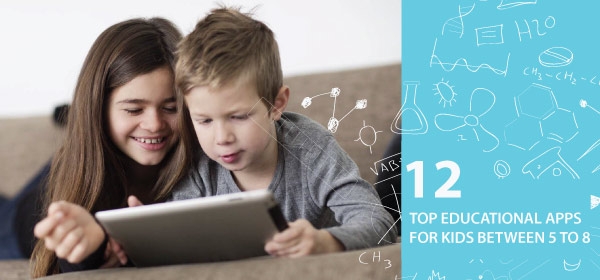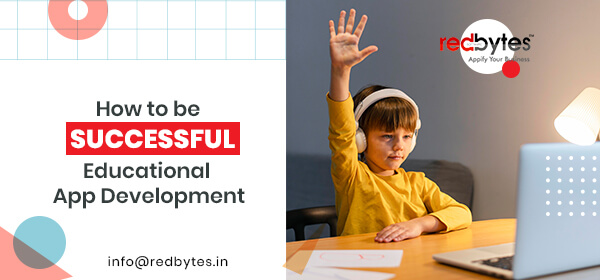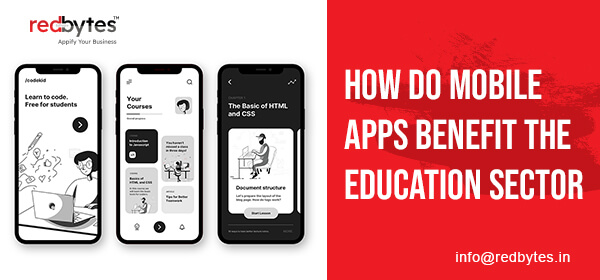An educational app is a powerful learning tool. But, it is very unfortunate that most educational app development companies don’t consider the importance of participating those people who understand students and the ways they learn better – Teachers. Good graphics, programming and design are not enough to satisfy the purposes behind educational app development. Taking expert guidance from educators during app development would be very beneficial in meeting the goals set.
Teachers are educational psychologists in themselves. They are in a direct position to evaluate and influence students.Utilizing the experience and knowledge of the teachers are very vital in planning, designing, and creating educational materials appropriate for the student’s ability at a definite age.
Here are 12 major areas where engaging educators can help to re-create the conditions favourable for learning.
1. Ensuring the app is Curriculum Based
The instructional design should follow all the particulars specified under the state’s school curriculum standards. Teachers know best about what the curriculum looks like.
So development companies should work side by side with school faculties in an attempt to apply the various curriculum specifications into educational apps.
2. Deciding Objectives
Teachers should be the ones who decide what skill sets need to be developed through the learning app.
They can set goals for developing and honing skills including cognitive, verbal, motor etc.
3. Deciding the Quantity, Modes, and Methods of Providing information
Teachers can help to obtain suitable contents for the app. They will give you a fine idea about what was learned before and what continues from the previous years that has to be recalled since acquiring new skill sets will be based on previously acquired skills.
They can suggest the right mix of illustrations, examples, audios, videos and other forms of supplements and reinforcements. They can propose what needs a repetition and what needs to be just mentioned.
4. Ensuring the Content is apt For the user’s Cognitive Ability
Cognitive development is progressive with age and occurs in four different stages. It is very important to pick the right educational activities that facilitate learning processes appropriate to the age.
There might be also special education requirements. Teachers can regulate the degree of complexity adequately and simplify concepts for better understanding.
5. Deciding the Time Allocation and Importance given to Each Concept
The time allotted for mastery of each individual concept should be analogous to the priority given to the specific subject matter. There should be the right mix of learning and entertainment in educational apps.
6. Selecting Appropriate Content that Respects the Individuality and Beliefs of the User
The app’s content should not hurt the beliefs and values of the user. It is a very difficult job, since these features vary by locality, religion, social class and even between individuals.
Teachers can have a better insight about the various customs and beliefs of their pupil. So they are in a better place to decide the content of the app.
7. Ensuring Adherence to School and Classroom Rules
The rules and regulations in each school are different. The educational settings, faculties, tools, and facilities available varies a great deal.
Proper communication with the school departments and staffs is inevitable to tune the app to abide by the particular directives of a school.
8. Deciding the Pace at Which Instructions are Given
Students will be familiar with particular teaching strategies, learning styles and instructional pace that depends on various factors such as the curriculum, schools attended, country of schooling etc.
All these factors should be accommodated into the designing criteria of the app by discussing with the concerned staff members of each subject.
9. Ensuring Social Skills and Life Skills are also Developed
Education should involve enabling students to acquire the social and life skills that are valuable in life. Co-operation, socializing, manners, participation, involvement etc. are some key skills that need to be focused.
Must read: How much does it Cost to Build an Educational App for Kids?
10. Cultivating Moral Values and Ensuring Character Development
Emotional and behavioral development are also fields, posing a challenge to educational app development where a teacher’s direction can be of great help.
The characters, themes, music and every other element that goes into the app should not be disturbing or unethical in nature. It shouldn’t hurt the moral values and induce deviant behaviour in children.
11. Deciding Testing and Evaluation Methods
In the educational process, apart from the instructional theories, and teaching strategies there is also something else that is of core importance- the right assessment method. The learning outcomes should be properly tested and evaluated for meeting its objectives.
Since teachers are experienced hands in assessing hundreds of students with individual differences in intelligence, they can guide towards implementing a proper assessment method for applications too.
12. Deciding the Feedback Method
Teachers can advise how to give effective feedback to students. They can figure out what types of feedback and rewards will motivate students and will keep them interested in the app.
Also Check: Latest Updated Educational Apps Directory List
![Why Teachers are Important for Educational App Development [12 Reasons]](https://wp.redbytes.in/wp-content/uploads/2017/10/12-Reasons-Teachers-are-Important-for-Educational-App-Development-1.jpg)





